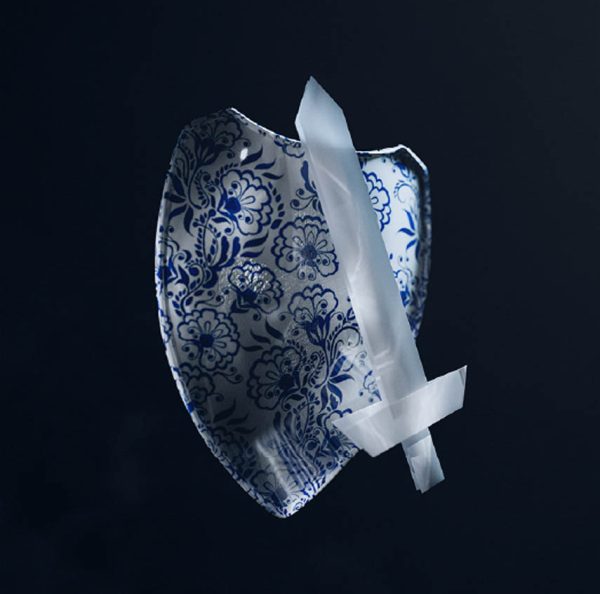Sweet Mary Sue takes a bold approach in crafting a fusion musical artwork in the album Porcelain Shield, Paper Stone. Making a benchmark for a one of a kind listening experience, this album takes you through Taoist folklore through abstract hip-hop, Southeast Asian samples, alongside jazz blues influences. In collaboration with the Clementi Sound Appreciation Club, Mary Sue fuses samples and live instrumentation on their upcoming album, Porcelain Shield, Paper Sword, set for release on June 13th via Rucksack Records and La Munai Records.
Clementi Sound Appreciation Club is a five piece ensemble of emerging jazz-trained musicians from Singapore’s local scene. Guitarist Kenzo Nagari and drummer Farizi Noorfauzi previously featured on rapper-producer Mary Sue’s last album, Voice Memos of a Winter in China (2024). For the upcoming release completing the group’s current lineup, they are joined by keyboardist Daniel Alex Chia, and bassist Russ Seow and saxophonist Bryan De Rozario.
The upcoming album draws inspiration from the raw textures and rhythmic backbone from 90s boom bap drums, with a strong foundation in underground hip-hop music. There lies influences like Billy Woods, Ka, MF DOOM, and the Backwoodz Studioz collective shape the project conscious, though never preachy, approach to lyricism. The writing relies heavily in abstract, story-driven, creating a narrative style that rewards intentional listening. Also inspired by Preservation’s Eastern Medicine, Western Illness particularly in its bold use of Hong Kong pop samples, encouraging Mary Sue to explore whilst embracing sounds that invite deeper understanding.
For this album, Mary Sue took a different approach to writing, shifting from his usual stream-of-consciousness style to a more story-driven, character-based process. Stepping into the voice of a loosely imagined oracle–a figure whose prophecies were misunderstood until time caught up with them, he crafted the lyrics through that lens, drawing inspiration from folklore and the poetic cadence of ancient texts, even in translation. This narrative constraint shaped the album’s language and imagery, limiting cohesive, immersive persona. The result is a body of work that blends abstract storytelling with mythic resonance.
A central theme in this album is the tension between anger and ancient spiritual teachings. Heavily drawn by Taoists and Buddhists excerpts, this album is able to explore how these philosophies that are rooted in acceptance and alignment with the natural order contrast with the chaos and injustice of the present world. The spiritual inquiry, asking whether ancient wisdom still holds in today’s fractured landscape, underscores the album’s search for meaning, calm, and clarity in a time that feels anything but.
Due to the nature of this album, Sue is less reliant on samples compared to the previous album. “We have a lot of samples to base ourselves on, we take that and add to it, and it becomes our own thing.” Sue mentions. There is an existing clash between western and eastern culture and philosophy. Coming from a context deeply shaped by westernization, the album questions lost roots and inherited musical languages. Working with musicians that are trained predominantly in Western styles such as jazz, soul, and blues, Mary Sue encouraged reinterpretation rather than replication, leading to a fluid, hybrid sound that defies expectation. When it comes to a live hip-hop band, people tend to associate it with genres such as jazz or neo-soul, they instead push into more textured territory, letting the music grow unpredictability.
The album invites listeners to sit with dissonance and return for a second listen. During the first listen, it may bring some unfamiliarity as it strays away from convention. Though beneath the mosaic of layers, lies a crafted body of work that rewards close attention. “I feel like we are introducing a different sound, take a chance and try to listen to it. Read the lyrics if you can” Sue mentions. Reading the lyrics are highly encouraged, available on Bandcamp, while also engaging with the various themes, particularly making ends meet and navigating today’s fractured realities.


